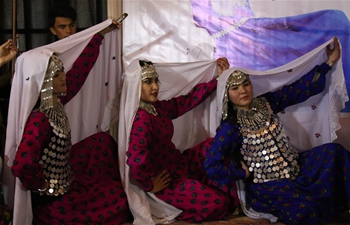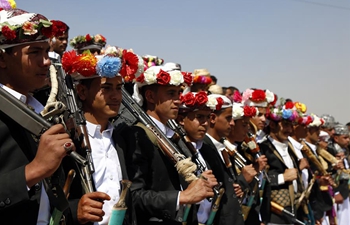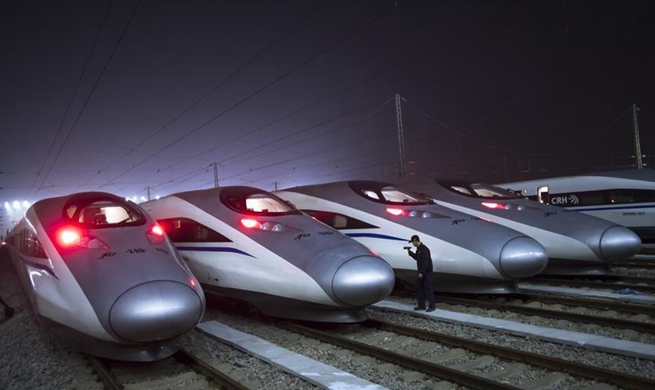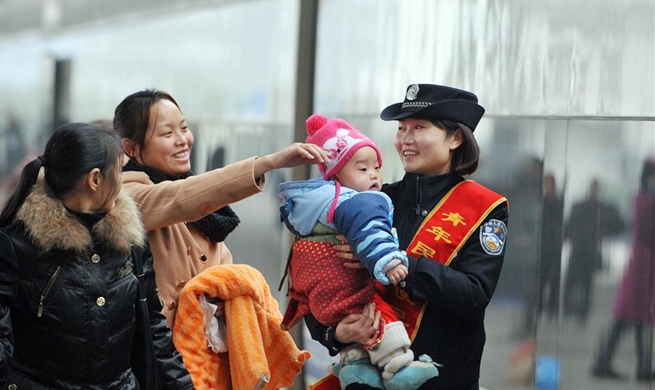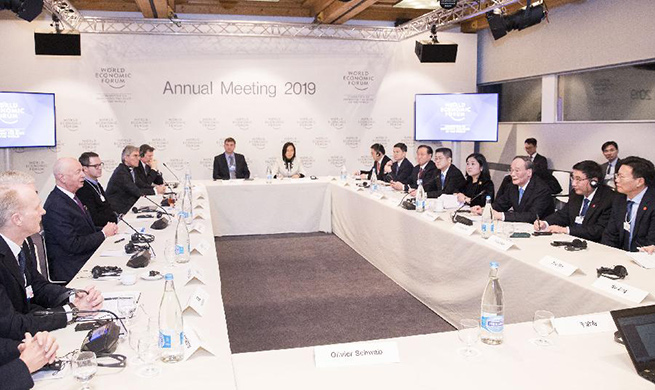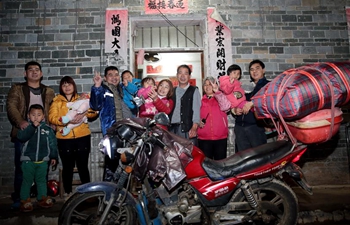MANILA, Jan. 25 (Xinhua) -- The Commission Elections (Comelec) of the Philippines proclaimed a victory for "yes" votes on Friday to ratify the Bangsamoro Organic Law (BOL) in the Jan. 21 referendum in provinces of the southern Philippines.
In the final tally, Comelec said 1,540,017 voted in favor of BOL while 198,750 voted against the decree that would establish the Bangsamoro Autonomous Region of Muslim Mindanao (BARMM).
On Monday, Moro and non-Moro in the southern Philippines voted to ratify BOL, a law that paves the way for the creation of BARMM, a larger autonomous region for the Muslim minority that is hoped to end nearly half a century of bloody fighting in Mindanao that killed an estimated 120,000 to 150,000 people.
The first referendum was held in the southern provinces that make up the Autonomous Region in Muslim Mindanao (ARMM) Basilan, Lanao del Sur, Maguindanao, Sulu and Tawi-Tawi and in the cities of Cotabato and Isabela in Basilan province.
A second vote will be held on Feb. 6 in Lanao del Norte province except Iligan City and six towns in North Cotabato province that may want to join BARMM, a larger region with more autonomy than the current ARMM.
The Bangsamoro area includes part of the Philippines' second-largest island of Mindanao and a chain of dozens of small islands to the west notorious for piracy and banditry. An estimated 5 million Muslims live in the region.
The BOL is the result of decades-long, on-and-off peace negotiations between the government and the Moro Islamic Liberation Front (MILF), the country's largest Muslim rebel group, that started in 1996. The military claims the MILF has an estimated 11,000 fighters. However, the MILF claims they have 30,000 to 40,000 fighters.
The Philippine government believes that the BOL will also pave the way for the integration process of the thousands of MILF fighters and their families to reintegrate into mainstream society and live peaceful and productive lives.
The government and the MILF signed in 2014 the final Comprehensive Agreement of the Bangsamoro peace agreement.
The new-created BARMM, enjoying more power, can have its own judicial system and parliament. However, the autonomous government cannot have its own military and police force, as these would still be under the Philippine national government.


